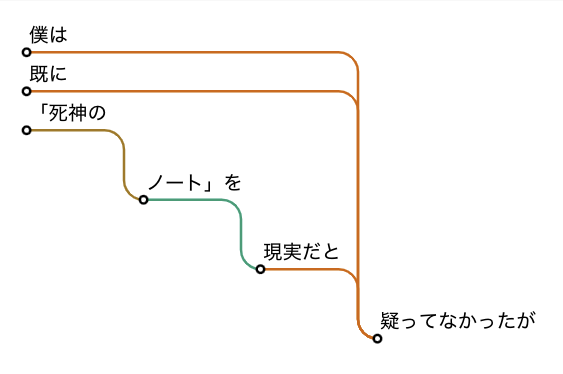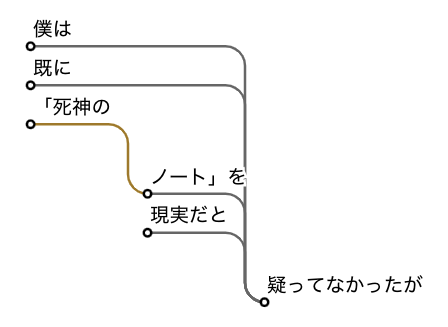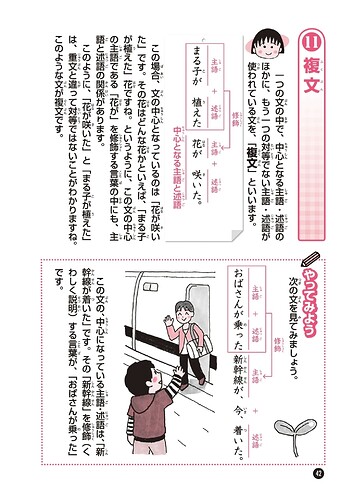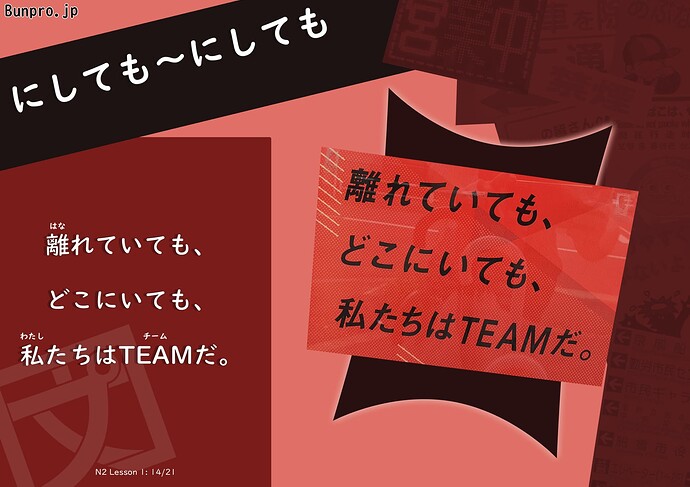だと
For this one, it might be that you’re used to seeing the verb following を straight away. However, for する verbs, it might be better to think of them as nouns… Because they are nouns.
A word attached to する is never actually a verb, する itself is the verb, and in casual Japanese, you can make -any- noun into a する verb (タピをする) “To drink bubble tea”
Japanese is language in which the information before the particle is important, not after. So in this sentence, the を is not actually connected to 現実 at all, but 疑う, which is a transitive verb.
だと has a few different functions, and to be honest a few of them could work in this sentence. But for me the one that felt the most accurate was the ‘that’. In this sentence he could leave out 事実だと, but it would be far less impactful. It adds to why he wasn’t doubting it.
I already wasn’t doubting the shinigami notebook… that it’s real.
Sounds like a sub-thought that he just chose to throw in.








